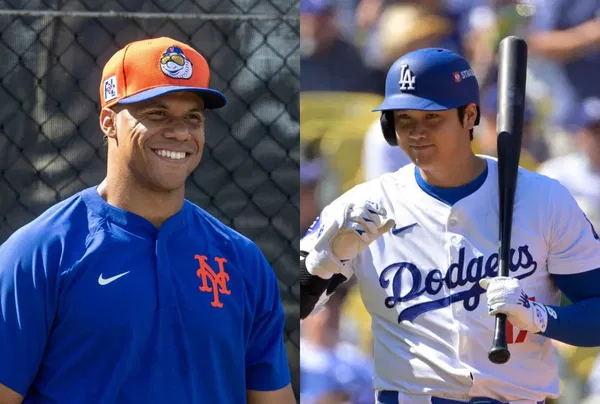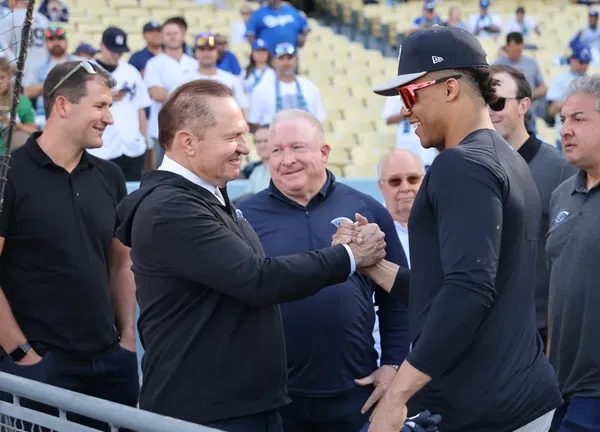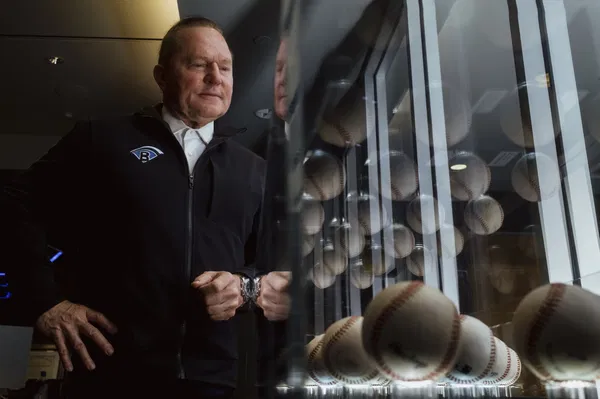
In Major League Baseball, massive financial decisions are often made quietly, behind the roar of fans and the sound of a bat striking a ball. It’s a game of strategy and timing, played by agents as much as players. One name that dominates these silent negotiations is Scott Boras—an agent known for brokering some of the largest contracts in the sport’s history. His talent for transforming players into multi-millionaires is unmatched, though not without some missed opportunities, such as failing to represent Shohei Ohtani.
Imagine a scenario where a single agent could have represented both Juan Soto and Shohei Ohtani—two of the most electrifying and impactful players in the game. Each has reshaped the modern MLB landscape in their own way. While Boras secured a record-breaking deal for Soto, he was unable to bring Ohtani under his wing. This contrast highlights the intricate and often unpredictable nature of sports representation.
Back in 2018, Boras made a strong push to sign Ohtani before his MLB debut. He flew to Japan five times and met with Ohtani’s parents in hopes of becoming his agent. Despite these efforts, Ohtani chose to be represented by Nez Balelo from CAA Sports. That decision marked a rare miss for Boras, who is more commonly known for landing top-tier clients.

Still, Boras had another major opportunity in Juan Soto. During negotiations with the New York Mets for Soto’s contract, comparisons to Ohtani’s own historic deal with the Los Angeles Dodgers inevitably came up. Owners argued that because Ohtani excels as both a pitcher and hitter, his estimated $700 million contract made Soto worth less. But Boras wasn’t having any of that.
He countered by emphasizing Soto’s unique value—particularly his age and consistent offensive output. Boras made it clear that Soto’s worth didn’t need to be measured against Ohtani’s hybrid role. The result? Soto landed a groundbreaking 15-year contract worth $765 million with the Mets, the largest in baseball history, even exceeding Ohtani’s massive deal.
This triumph is just the latest in Boras’s long history of reshaping MLB contracts. In 1997, he made waves by negotiating a five-year, $57.5 million deal for Greg Maddux—then the highest ever. A year later, he negotiated the first $100 million contract for Kevin Brown, a seven-year, $105 million agreement.

Over the years, Boras has used a data-driven approach and a deep understanding of market dynamics to push the envelope. Instead of encouraging short-term contracts, he leverages long-term market trends to benefit his clients.
In 2019, Boras was behind several massive contracts. He negotiated a 13-year, $330 million deal for Bryce Harper with the Phillies, which stood out for its lack of opt-outs and a full no-trade clause. That same year, he secured a nine-year, $324 million contract for pitcher Gerrit Cole with the Yankees, setting records in terms of average annual value and total compensation for a pitcher.
Boras also negotiated a 10-year, $325 million deal for a Texas Rangers player in 2021 and a seven-year, $245 million contract for Stephen Strasburg with the Nationals, which, at the time, became the largest for a pitcher.
Perhaps his most iconic deals were for Alex Rodriguez. In 2000, Boras negotiated a 10-year, $252 million contract for Rodriguez with the Texas Rangers—then the biggest in sports history. He later topped that in 2007 with another 10-year deal for Rodriguez, this time worth $275 million with the Yankees.
These record-breaking agreements haven’t just made headlines; they’ve fundamentally changed the financial structure of baseball. Teams have been forced to reconsider how they manage their payrolls, and the standards for elite player salaries have risen dramatically. Boras’s strategies have not only benefited his clients but have also set new benchmarks in contract negotiations across the league.
Even though he didn’t sign Ohtani, Boras remains one of the most influential figures in professional baseball. His work has reshaped the economics of the game and set a new standard for player representation in sports.